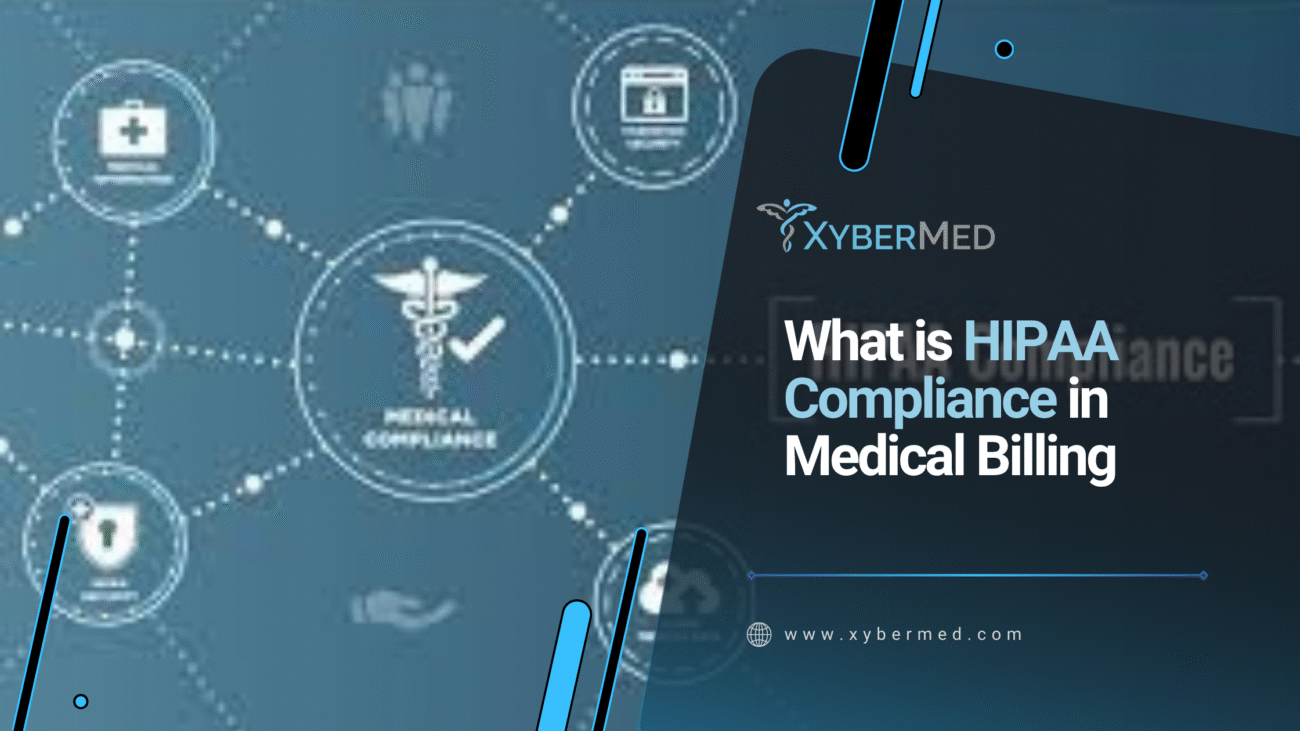Accurate and efficient medical billing is the backbone of any successful healthcare practice. Yet, many providers face ongoing billing challenges that affect cash flow, compliance, and overall operational efficiency. At XyberMed, we understand these pain points and help medical practices implement effective strategies to ensure accuracy, compliance, and financial stability.
Below, we’ve outlined the top 10 medical billing challenges and practical solutions to help healthcare organizations overcome them.
1. Coding Accuracy and Compliance
Challenge: Inaccurate coding often leads to claim denials, underpayments, and audits, resulting in financial losses and administrative burdens.
Solution:
-
Provide continuous education and training for medical billers and coders.
-
Implement regular coding audits and quality checks before claims are submitted.
-
Use coding software that offers real-time assistance and compliance updates.
-
Encourage collaboration between coders, billers, and clinical staff for precise documentation.
2. Timely Claim Submission
Challenge: Late claim submissions can delay payments, disrupt cash flow, and risk denials due to filing deadlines.
Solution:
-
Set clear processes for fast and accurate data entry.
-
Use electronic claims submission to minimize manual errors.
-
Employ software or clearinghouses for claim scrubbing and tracking.
-
Monitor claim cycles regularly to identify bottlenecks.
3. Denial Management
Challenge: Claim denials cause revenue loss and increase administrative workload due to rework and appeals.
Solution:
-
Establish a denial management process with root-cause analysis.
-
Train billers on documentation and appeal best practices.
-
Use denial management software for tracking and pattern analysis.
-
Strengthen communication between billers, coders, and clinicians to reduce preventable denials.
4. Patient Eligibility and Benefits Verification
Challenge: Failing to verify eligibility leads to claim denials and billing errors.
Solution:
-
Standardize the verification process before patient visits.
-
Use automated eligibility verification tools.
-
Train front-office staff to collect accurate insurance data.
-
Keep communication open with patients to resolve discrepancies quickly.
5. Managing Payer Contract Terms and Fee Schedules
Challenge: Tracking multiple payer contracts and reimbursement rates can be complex and error-prone.
Solution:
-
Centralize contract and fee schedule management.
-
Review and update payer terms regularly.
-
Train staff to interpret contracts correctly.
-
Use billing tools that automate fee schedule updates and compliance checks.
6. Coordination of Benefits (COB)
Challenge: Handling multiple insurance payers can cause billing confusion and delayed payments.
Solution:
-
Verify primary and secondary coverage during registration.
-
Use COB software for accurate coordination.
-
Educate billers on COB rules and claim order procedures.
-
Maintain open communication with payers to fix discrepancies quickly.
7. Ensuring HIPAA Compliance
Challenge: Non-compliance with HIPAA can lead to privacy breaches, penalties, and reputational damage.
Solution:
-
Conduct regular HIPAA training for all staff.
-
Establish secure data-handling procedures and encryption.
-
Perform ongoing risk assessments and audits.
-
Use HIPAA-compliant billing software with proper access controls.
8. Managing Accounts Receivable (A/R)
Challenge: Poor A/R management results in delayed collections, bad debt, and cash flow issues.
Solution:
-
Track A/R using aging reports and follow-up schedules.
-
Automate payment posting and reminders through billing software.
-
Communicate clearly with patients and payers to resolve issues fast.
-
Consider outsourcing A/R management if resources are limited.
9. Keeping Up with Regulatory Changes
Challenge: Frequent regulatory and coding updates make it difficult to stay compliant.
Solution:
-
Assign a compliance officer or team to track updates.
-
Invest in continuous training and certification programs.
-
Stay connected with industry organizations and regulatory agencies.
-
Audit processes regularly to ensure alignment with current rules.
10. Optimizing Revenue Cycle Management (RCM)
Challenge: Inefficient RCM processes lead to payment delays, denials, and reduced profitability.
Solution:
-
Analyze your full revenue cycle to find weak spots.
-
Automate workflows like registration, verification, and posting.
-
Use analytics to track KPIs and identify revenue leaks.
-
Encourage collaboration between billing, coding, and clinical teams.
Conclusion
By addressing these challenges with the right strategies and technology, healthcare providers can:
-
Reduce denials and delays
-
Improve cash flow and profitability
-
Ensure compliance and accuracy
-
Enhance operational efficiency
At XyberMed, we help medical practices streamline billing processes, implement automation tools, and maintain full regulatory compliance. Our goal is to help your practice focus more on patient care and less on paperwork.
Would you be ready to optimize your medical billing?
Schedule a meeting with our billing experts and discover how XyberMed can streamline your revenue cycle and boost your practice’s performance.


